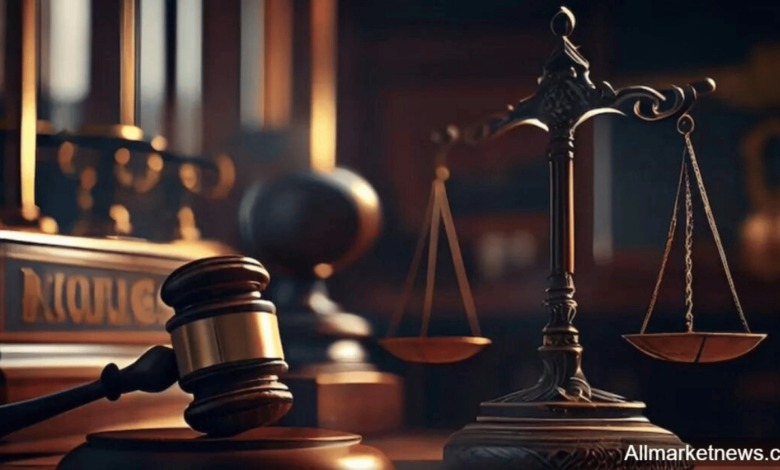Understanding the C.W. Park USC Lawsuit: Key Insights and Implications

The C.W. Park USC lawsuit has captured significant attention within the academic community and beyond. This legal battle involves Choong Whan Park, a former tenured professor at the University of Southern California (USC), and addresses a range of serious allegations. This article delves into the details of the case, the legal complexities involved, and the broader implications for higher education institutions.
Background of the C.W. Park USC Lawsuit
Allegations Against C.W. Park
The C.W. Park USC lawsuit centers around allegations of sexual misconduct and discrimination brought against Choong Whan Park, a professor at USC’s Marshall School of Business. The lawsuit alleges that Park engaged in inappropriate behavior with several female students, including sexual harassment and assault. The allegations also include claims of discrimination, specifically targeting students of Korean descent.
USC’s Response
In response to these allegations, USC has largely denied wrongdoing. The university asserts that it followed appropriate procedures in handling the claims against Park and has conducted internal investigations into the matter. USC maintains that it has acted by its policies and did not engage in discriminatory or retaliatory actions.
Legal Complexities of the Case
Key Legal Issues
The C.W. Park USC lawsuit involves several key legal issues, including:
- Due Process: Park claims that USC’s handling of the allegations against him violated his right to due process. He argues that the university’s procedures lacked fairness and transparency.
- Academic Freedom: The lawsuit highlights concerns over academic freedom, with Park alleging that USC’s actions infringed upon his rights to pursue research and express scholarly opinions.
- Breach of Contract: Park asserts that USC breached its contractual obligations by failing to adhere to agreed-upon procedures for addressing allegations against him.
Ongoing Legal Proceedings
The lawsuit is still in progress. Both parties present their cases, and the legal proceedings involve detailed examinations of evidence and arguments. The outcome will depend on the strength of the evidence and the interpretation of relevant laws and contractual agreements.
Implications for Higher Education
Impact on Academic Institutions
The C.W. Park USC lawsuit has broader implications for academic institutions. It underscores the need for universities to handle allegations of misconduct with transparency and fairness. The case serves as a critical example of how universities must balance the rights of individuals with the need to maintain academic integrity and institutional accountability.
Changes in University Policies
In response to the case and public scrutiny, USC has implemented new policies and procedures aimed at improving its handling of sexual misconduct allegations. These changes reflect a broader trend in higher education institutions towards greater accountability and transparency in addressing such issues.
Ethical Considerations
Balancing Rights and Accountability
The C.W. Park USC lawsuit raises important ethical questions about balancing the rights of individuals with the need for institutional accountability. Universities must navigate complex issues related to procedural fairness, academic freedom, and the protection of students’ rights. The case highlights the ethical responsibilities of educational institutions in maintaining scholarly standards and ensuring a safe environment for all students.
Transparency and Fairness
Ensuring transparency and fairness in handling allegations of misconduct is crucial for maintaining trust within academic communities. The lawsuit emphasizes the importance of adhering to established policies and providing clear and fair processes for addressing complaints.
The Future of the Case
Potential Outcomes
The future of the C.W. Park USC lawsuit remains uncertain. Depending on the legal arguments and evidence presented, the case could proceed to trial, settlement negotiations, or even dismissal. The outcome will likely have significant implications for how universities handle similar cases in the future.
Long-Term Implications
The case is likely to influence future legal disputes and university policies related to academic misconduct. The outcome may set precedents for how universities address allegations and the extent to which they are held accountable for their actions.
FAQs
1. What are the main allegations in the C.W. Park USC lawsuit?
The lawsuit alleges sexual misconduct, harassment, and discrimination by C.W. Park, including inappropriate behavior toward female students and targeting students of Korean descent.
2. How has USC responded to the allegations?
USC has denied the allegations and conducted internal investigations. The university claims it followed proper procedures and did not act in a discriminatory or retaliatory manner.
3. What are the key legal issues in the C.W. Park USC lawsuit?
Key legal issues include due process violations, infringement on academic freedom, and breach of contract by USC.
4. What are the broader implications of the C.W. Park USC lawsuit for higher education?
The lawsuit highlights the need for transparency and fairness in handling misconduct allegations and may lead to changes in university policies and procedures.
5. What ethical concerns are raised by the C.W. Park USC lawsuit?
The case raises ethical issues related to balancing individual rights with institutional accountability, transparency, and procedural fairness in addressing misconduct.